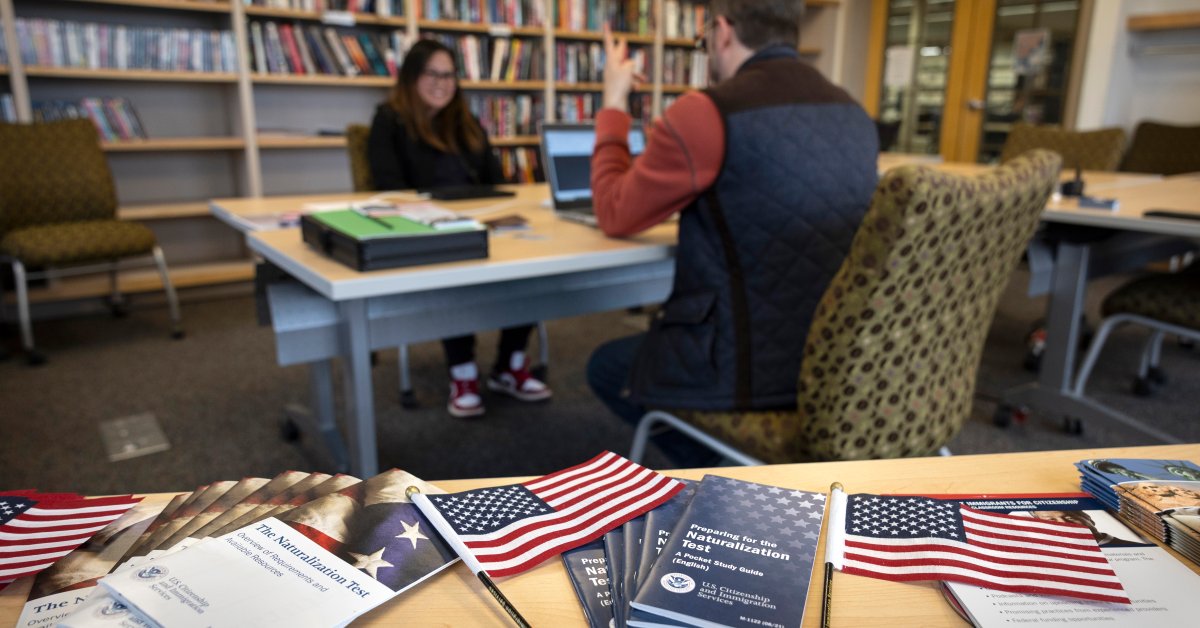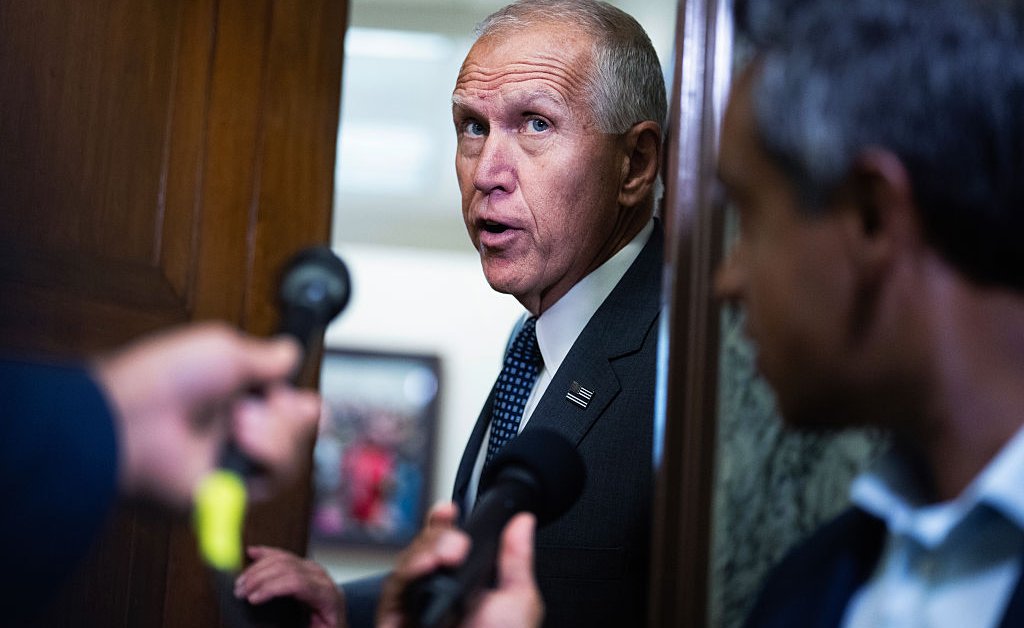The test most adult immigrants to the United States take to become naturalized citizens could become much harder under new plans floated by the Trump Administration this week.
“This test is just too easy…We need to make it a little more challenging…We’re going to make the test harder in terms of making questions a little more thought-provoking,” said Joseph Edlow, Director of U.S. Citizenship and Immigration Services (USCIS), at an event hosted by the Center for Immigration Studies think tank in Washington.
Read more: Trump Admin Expands ‘Good Moral Character’ Test for U.S. Citizenship Applicants to ‘Root Out Anti-Americanism’
Although no formal plans have been put forward, Edlow’s comments demonstrate the Trump Administration’s commitment to reducing not only illegal immigration, but also legal routes to becoming a U.S. citizen.
Here is what you need to know about the citizenship test.
What does the test look like now?
Currently, the citizenship test used in the naturalization process includes a civics exam and an English exam to show proficiency in the language.
On the civics exam, applicants are asked ten out of 100 possible history and government questions available to study on the USCIS website. In order to pass, they need to answer six out of the ten questions correctly.
Many of these questions relate to the Constitution or Bill of Rights—for example, “What stops one branch of government from becoming too powerful?” and “What is one right or freedom from the First Amendment?”
There are also questions about U.S. history— for example, “Why did the colonists fight the British?” or “Name one problem that led to the Civil War.”
Some of these questions have multiple right answers depending on the question.
What is going to change?
Edlow argues, though, that the citizenship test is currently too easy for applicants and that they can be guided through the process. The test, he says, shouldn’t be “impossible” but should be more ideological than just factual.
“A question of simply, ‘hey, name two federal holidays’ and, you know, ‘name one branch of government’ or ‘name your governor.’ It’s simply not enough,” he said. “We need to know more, especially if we’re going to really understand whether someone has a true attachment to the Constitution as required by the statute.”
He also explained that there could be an essay section in the test, with a more open-ended question, and subsequently more discretion in scoring.
These essay questions could include subjects similar to “What does it mean to be an American?” or “Who was your favorite founding father?” Edlow told Axios.
Why is this happening?
Edlow argues that there is “fraud” happening in the naturalization process.
“I am declaring war on fraud. I am declaring war on anyone that is coming to this country and wants to get a benefit, but doesn’t want the responsibility of what it means to actually be a U.S. citizen,” Edlow said during the conference.
He also said that USCIS is not just a service agency but a “law enforcement agency,” something that has become increasingly apparent with recent changes, including one on Thursday that expanded the agency’s law enforcement capacities, as well as its ability to order expedited removal and investigate civil and criminal violations of immigration laws.
USCIS has traditionally operated separately from immigration enforcement efforts, but recent changes suggest the naturalization process will become a part of the Trump Administration’s aggressive sweeping crackdown.
Professor Daniel Kanstroom, of Boston College Law School, says changes have been made to the test many times, but adding an essay section to the citizenship test would raise questions about how it would be judged, and by whom.
The changes come after USCIS released a memo last month that changed the metric for the requirements of “good moral character” in U.S. citizenship applications, including screening for “anti-American” views. The August memo from the USCIS called for “restoring a rigorous, holistic, and comprehensive good moral character evaluation standard” for immigrants applying for naturalization.
“The question comes down to are we a fundamentally open country or are we a fundamentally closed country,” Kanstroom tells TIME of the new potential citizenship test. “That’s what is at stake here.”
There’s a “dissonance” in the Trump Administration’s definition of what citizenship means, Kanstroom adds.
“It’s troubling to me that with this test change there’s a view of citizenship as a precious commodity, but then there is also his “gold card” visa,” he says, referring to the visa launched by Trump earlier this year that offers the legal right to live and work in the U.S. for the sum of $5 million.








